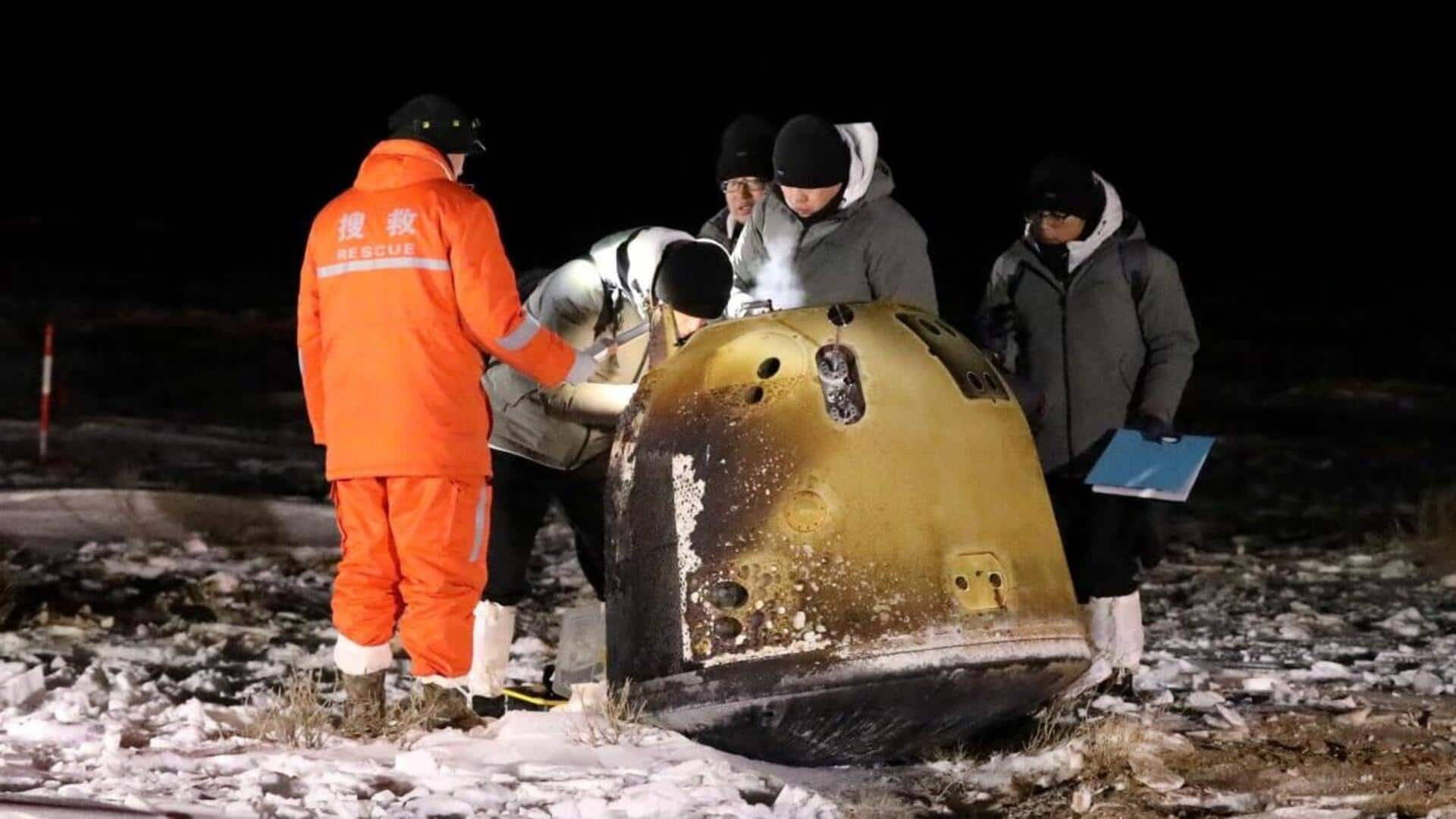
China to share rare Moon rocks with US—despite ongoing tensions
What's the story
China National Space Administration (CNSA) has agreed to share samples of Moon rocks with a few international institutions, including two in the US.
The decision was announced on the occasion of China's National Space Day.
The rock samples were collected by Chang'e-5, which landed on the Moon's near side in 2020.
The probe returned to Earth with approximately 1.73kg of rocks, many of which are about a billion years younger than those previously collected by the Americans and Soviets.
Scenario
US institutions needed special permissions to receive samples
Chinese researchers have been unable to access NASA's Moon samples due to restrictions placed by US lawmakers on the agency's collaboration with China.
Also, the 2011 law prohibits NASA from working with China or any Chinese-owned companies, unless explicitly authorized by Congress.
The two American institutions, Brown University and Stony Brook University, that are funded by NASA, needed special permission from Congress to borrow the samples.
International cooperation
Global collaboration in lunar research
Other institutions to receive the Moon rock samples are Germany's University of Cologne, Japan's Osaka University, the UK's Open University, France's Paris Institute of Planetary Physics, and Pakistan's Space & Upper Atmosphere Research Commission.
Shan Zhongde, head of CNSA, said they received applications to borrow Moon rocks from 11 countries.
He stressed China's commitment to accepting international research applications for loans and principles like equality and mutual benefit.
Scientific collaboration
Very little to do with politics
The sample sharing comes amid the ongoing trade tensions between the US and China.
However, this scientific collaboration has been described as "a shared treasure for all humanity" by Zhongde.
John Logsdon, former director of the Space Policy Institute at George Washington University, told BBC that this exchange of Moon rocks has "very little to do with politics."
He further clarified that while there are controls on space technology, examining lunar samples had "nothing of military significance."
Scientific significance
Chang'e-5 Moon samples reveal unexpected volcanic activity
The Chang'e-5 Moon samples are particularly unique as they "seem to be a billion years younger" than those collected from Apollo missions, Dr. Logsdon said.
This also indicates that volcanic activity on the Moon occurred more recently than previously believed.
Despite US and Chinese space officials' attempts last year to negotiate an exchange of Moon samples, only Brown University and Stony Brook University were chosen among US institutions, along with institutions from other countries.